Plex: 20 March 2024
RIP Harrison Owen; 29th WikiBirthday Calls; Tom Atlee's Co-Intelligence Book; Regeneration Events Calendar; Give2Invest; AI Salon; Synchronicity: AI Can Help Bridge the Gap in Climate Action; On Collective Cyborg; Lifeboat Labs; Portrait of a Conversation; Breath of Fire; A Few More Pix

The Biweekly Plex Dispatch is an inter-community newspaper published by Collective Sense Commons on first and third Wednesdays of each month. Price per issue: 1 USD, or your choice of amount (even zero).
In This Issue
- RIP: Harrison Owen (OGM Mailing List)
- 29th WikiBirthday Calls (John Abbe)
- Tom Atlee's Co-Intelligence Book (Co-Intelligence Institute)
- Regeneration Events Around the World Calendar (David Witzel)
- Give2Invest Is a Major Hit (Kevin Jones)
- Communities You Might Like: AI Salon (Peter Kaminski)
- Synchronicity: AI Can Help Bridge the Gap in Climate Action (Klaus Mager)
- On Collective Cyborg (George Pór)
- Evolving Strategy: Lifeboat Labs (Douglass Carmichael)
- Portrait of a Conversation (Todd Hoskins)
- Breath of Fire–Winter 2007 (Ken Homer)
- A Few More Pix (Ken Homer)
RIP: Harrison Owen
Participants on the OGM List this week shared short remembrances of Owen Harrison and his influences on their lives. Harrison died on March 16, 2024 at the age of 88, from natural causes.
Harrison was particularly known for creating Open Space Technology, which is a deceptively simple approach to organizing meetings, used by Internet Identity Workshop, BarCamps, RecentChangesCamps, and many, many other organizations and gatherings.
Read more:
- Harrison Owen has died (Chris Corrigan)
- Remembering Harrison Owen, 1935 – 2024 (Open Space World)
29th WikiBirthday Calls
Two calls on Monday, March 25 on Zoom
by John Abbe
Next Monday is the 29th anniversary of the launch of the first wiki! On March 25, 1995, Ward Cunningham launched the Portland Pattern Repository, which is still available today at http://wiki.c2.com/
Since then, countless other wikis have been born exploring everything from patterns & pattern languages to organizations, to fandoms, to journalistic efforts, to individual projects, to entire movements, and beyond, including of course many of the world's largest encyclopedias. Countless people use wikis every day, because wikis have become a key part of how humans tell – and edit – our stories.
A few dozen people were on a 25th anniversary WikiBirthday call a few years ago, which provoked much joy. In the hopes of having a similarly wonderful time together this year, some of us have organized a couple of video calls to meet with other wiki aficionados. Ward Cunningham will be with us on both of these calls, and we hope you can join us as well!
This invite is also going out to other community-minded technologists, unconference and Open Space organizers, artists, Wikipedians, and many others. It's a chance to share what you are up to with wiki lately, and any new (& old) wiki tools you find useful or promising. We can also highlight past wiki successes, mourn those no longer with us and wiki efforts which didn't work out, reflect on lessons learned, etc.
First call:
10am US Pacific time, 1pm US East, 5pm UK, 6pm Berlin, 10:30pm Mumbai, 4am Sydney
https://us02web.zoom.us/j/81142486161
Second call:
6pm Pacific, 9pm East, 1am UK, 2am Berlin, 6:30am Mumbai, noon Sydney
https://us02web.zoom.us/j/82738497575
And finally, we can imagine together what we might do for the bigger, 30th anniversary next year.
Please do pass this invitation, or craft one of your own, on to whomever would help us have a wiki time!
— Slow (John Abbe), Mark Dilley, and Ethan McCutchen
Tom Atlee's Co-Intelligence Book
Book launch on Wednesday, March 27 on Zoom
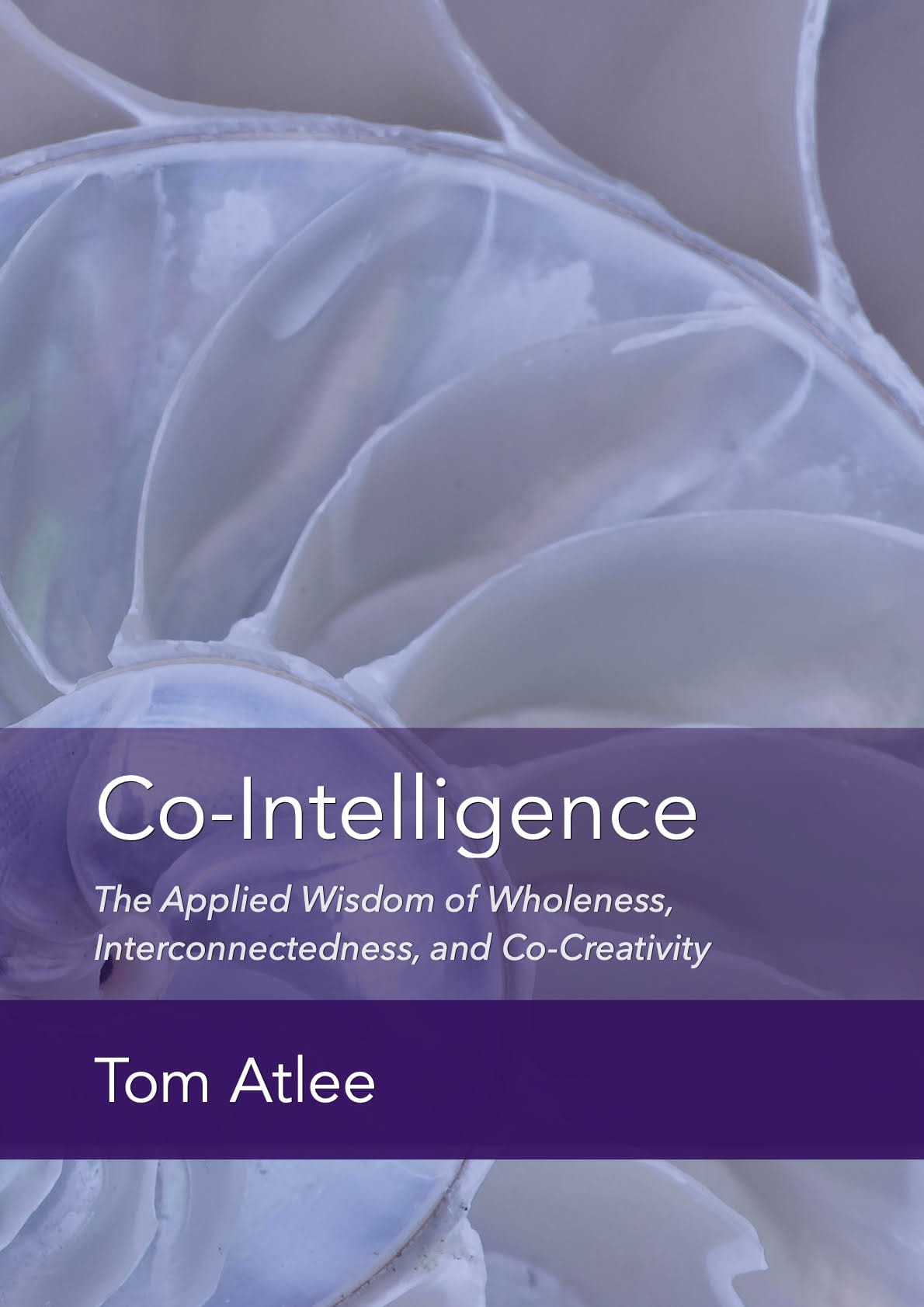
You are invited to join the Co-Intelligence Institute for a very special occasion: the online book launch event for Tom Atlee’s new book, Co-Intelligence - The Applied Wisdom of Wholeness, Interconnectedness, and Co-Creativity.
We’re so pleased to let you know Tom's book on Co-Intelligence has just been released and is already receiving a lot of positive feedback. So join us for the official book launch event, an interactive session on Wednesday March 27th — beginning at 10am Pacific/ 1pm Eastern/ 5pm UK
Tom, along with Martin Rausch, who supported the book’s creation, will tell the story of how it came to be. Tom will read excerpts & poems from the book, and there will be plenty of opportunities for group discussion and Q&A.
If you’d like to join us, register here and we’ll send you a Zoom link to join.
You can also read about this new book in Tom’s latest blog posts.

Regeneration Events Around the World Calendar
by David Witzel
Know what's happening where when!
Announcing the public, shared, crowd-sourced Regeneration Events Around the World calendar.
Keep track of the many amazing events being offered by an increasing number of people and organizations helping us realize a regenerative future. In-person, online, and around the world.
Add the calendar to your Google Calendar (click on the + in the bottom right) and discover a multitude of possibilities.
If you'd like to add events to the calendar, let me know.
Give2Invest Is a Major Hit
by Kevin Jones
Our Give2Invest tool is a major hit, and we have put a lot of our collective near-term focus on keeping up with the inbound demand of nonprofits who know just what to do with it and are jumping to sign up to our mashup that gets philanthropic patient capital investment dollars out on the street at the smallest easily institutional bite size of $5,000.
We have hired someone to do market research with these early adopters and to explain it to people who don’t have a nonprofit but can use this as a better experience than GoFundMe. Better for the people in their network who would have given to a GoFundMe.
So the innovation is targeted at people without the economic power of much money. The justice-focused nonprofits in the orbit of the host for our Act Local School class I am starting with my daughter B.J. Harden Jones this week seem to be eager for it and plan to attend our class on the Give2Invest Tool on March 20. You can zoom in, but it’s in person at our hosts, the Asheville Poverty Initiative.
She is like my handler, she says. She reminds me to listen and makes it interactive instead of me sort of pushing my vision all the time and sometimes getting frustrated when it takes people longer to get it than I like. She explains and facilitates people getting on board.
This is a family business and she’s good at guiding conversations toward goals and that’s a lot of how the market around Neighborhood Economics is growing; through helping people set up complex partnerships that are modular and easily adaptable; low friction coordination when needed is the goal. Or sometimes we just bring the innovation into the room and let people jump in to be engaged on their own; you provide time and space for that.
We see the Give2Invest tool as an important means to create what we really want; community engagement around economic principles that create healthy interdependence in a community across race, class, and zip code. We want these new tools we showcase to help local people, new alliances, focus on repairing some of the structural and systemic damage done, like subverting redlining following Joe Minicozi’s plan at Urban3.
We want to see G2I spread through uncoordinated innovation, propagated like dandelions, creating small, smart giving circles focused on a cause that matters. And then those circles overlap and build new emergent layers. That’s the plan.
Hired a couple of people. One to focus on biomedicinals in our bioregion using the Give2Invest tool. We have a propagation method of biomedicinals safely from seed or rhizome as opposed to the wild harvest that ravages the countryside as they hunt for ginseng and also damage the land where golden seal and black cohosh grow. A college here, Warren Wilson, can propagate them in their 3,000 sf forestry nursery and understory production acres. We are increasingly deep partners with the college, which is directly across the river from our farm, like 30 yards away.
We can transform the biomedicinals industry into something healthier, and we can create a niche in the market for that standard that increases demand so that the producers, just inching by, can thrive on increased demand. We use that to get access to Gaia, the big dog company that buys from us, with that standard added to their product line.
We use that further leverage, once we get there, to do more of our plan to make the smallholders, the healers who are also gig workers, more economically resilient. We need to raise money for that standard; Guaranteed from Seed, to be seen as an important, incremental but timely step above the rest of the market that it is.
We use that small window of brand premium as a lever to transform the market into something that works better for small producers in our bioregion. We sell to tourists who see the value of it, which grows the demand that gets Gaia on board.
charles blass
Communities You Might Like: AI Salon
by Peter Kaminski
Do you belong to a community that Plex readers should know about? This is a new series of short introductions to communities one or more of us are part of, that might be of interest to the rest of us. Think about writing something like the following, and send me email: kaminski@istori.com. BTW, I'm looking for someone to write a profile like this about Open Global Mind! I think it's nice if it's a community member who writes the profile, not a community leader, but please check the profile you've written with one of your community leaders before you send it to me. - Pete
AI Salon
If you feel like you want to know more about generative AI - what it is, what it's good for, how to use it - you might want to check out AI Salon.
The Salon is an active group of “AI Adventurers” learning, teaching, and doing with AI. They have a two-hour group call every other week, which is one of the main events, and then ongoing text (and images!) conversation in a variety of categories on their community website.
Learn more:
- home page, http://thesalon.ai/
- intro page, with their community values: https://aisalon.mn.co/spaces/12680192/page
- a guided intro from one of Kyle Shannon’s “AI Learning Lab” video series: https://youtu.be/TdBY13dqD8w?t=6696
I host one of the “spaces” in the AI Salon Technology Guild, called “Learn and Do with Peter”, where I demonstrate and teach beginning and medium-advanced AI topics, along with some basic computer things that help you get into AI more effectively. You can get an idea of what that’s like by looking through the list of live session recordings here: https://ai101.peterkaminski.wiki/ - click on the links to find the YouTube link for each session.
Synchronicity: AI Can Help Bridge the Gap in Climate Action
by Klaus Mager
Expanding on the plan to introduce and expand the role of AI in our food system:
Conversations with AI - The Future of Food
While there are valid concerns about the role of AI in our collective future, we should not allow that to paralyze our response to a far more immediate concern: surviving a changing climate by mitigating and adapting to the needs and demands of nature.
I maintain the same story; while our food system as configured today is a main driver of environmental degradation, it also has the capacity to change from contributing 1/3rd of global emissions to going carbon negative. The most significant challenge is to work with a common set of assumptions that coordinates and communicates across the spectrum of the economy a set of targeted outcomes, achieving what I would refer to as Synchronicity.
AI can fill that gap, provided that the algorithms feeding it are trusted and made widely available. It does sound like a very OGMy kind of thing to do.
charles blass
On Collective Cyborg
by George Pór
I’ve just listened to an inspiring podcast of Ross Dawson, The potential of Humans plus AI. His guests included one of my fave technosophers, Jerry Michalski. In a forum hosted by Ross, I wrote what follows.
That was a great podcast! I loved the questions that you asked. Besides the quality of the guests’ thinking, what tells an amazing podcast apart from a mediocre one is the space from which the questions come. (After sitting through some podcasts where i was submitted to clueless hosts, I became more selective about which invitation to accept.)
I particularly resonated with Jerry Michalski’s take on your cyborg question. He said,
“the other piece of being a better cyborg is not about being a lonely cyborg. But what does it mean to be in a collective of cyborgs? What does it mean to be in a cyborg space? What does it mean to co-inhabit cyborg intelligence with other people and other intelligences that are just going to get faster and better at this thing?”
I guess the “collective cyborg” is what I referred to as “superorganism.” There are more and more future-responsive techno-philosophers who are interpreting current trends along those lines.
But is that enough? What if we transposed Marx’s famous quote, “Philosophers have hitherto only interpreted the world in various ways; the point is to change it,” to our present-day context?
Extrapolating our interpretation of the current “human x AI” trend to the collective level, isn’t the point to devise ways to test the “superorganism” hypothesis with some kind of action-oriented research? I believe it is and I welcome Expressions of Interest from those colleagues who want to help in carry it forward.
P.S. Collective sense makers, who are also “big picture” thinkers and action-oriented visionaries, do need to apply. Extra good points for having AI savvy and metamodern sensibility. Address it to george.por@gmail.com and include [EoS] with your name on the subject line.
Evolving Strategy: Lifeboat Labs
by Douglass Carmichael
You must watch and cogitate about the NVIDIA keynote.
This is clever and fun, even shocking for scale, but my sense is that it is boring and strips our movements in the world of proximity to real people. I want the hint of real people in my interactions. AI removes that, giving us fake proxies. The proxies with NVIDIA extend to the whole world.
I am trying to develop the next level strategy ahead of and after initiating Gardenworlds.
A few years ago, I proposed the idea of Gardenworld and its politics [1] as a way into a viable approach to the climate-induced collapse that we were likely to experience. But then, as the reality of collapse became clear, I added the idea of lifeboats, and that successful lifeboats would become garden worlds and Gardenworlds could become centers of arts and conversation and hence elements of nascent civilizations, with access to the deep past of humanity which would be preserved in many places and forms and hence allowing rapid production at higher levels in arts, governance, and science.
I now want to call the Lifeboats lifeboat labs as places for, amongst life-sustaining necessities, places to experiment with new forms of human society, leaving behind war, capitalism, and much of the rest.
The strategy of first Lifeboats has a major advantage over Gardenworld because it is about preparation without dismantling current life patterns, and hopefully more attractive. The switch from current agriculture, often industrial, to Gardenworld, is too threatening and still considered unnecessary by most people. We need a stepping stone in between doing nothing and deep action.
You know how it goes, n people and n chairs and music. When the music stops the gods remove one chair and the n people struggle to fill the n minus 1 chairs. A moment of rushed chaos and then quiet as the chairs are filled and it is clear who lost out, and the music starts again. (I remember this from grade school in NYC.)

This is an apt metaphor. See, for example, this morning’s NYT article on palm oil affecting jobs in Malaysia. The idea is that European restrictions on palm oil imports cut jobs in Malaysia. Indeed, that is happening. The crunch, like musical chairs, will cost jobs and lives as we move toward the great simplification.
Might it not be better for the crunch to be managed within Malaysia than forced from the outside? The resulting action would be much better nuanced to local conditions. But it will be hard for local officials to be agents rather than victims along with their populations. The need to create lifeboats for each community will help clarify the logic.
1. The book Gardenworld Politics is available at Amazon.
charles blass
Portrait of a Conversation
by Todd Hoskins
10:30 AM (4:30 PM in Portugal) on Tuesday
Three people gathered from Costa Rica, Portugal, and California on Zoom
Me: What are we talking about today?
D: I don’t know.
E: I just thought the time was ripe for us to talk. It’s been awhile.
I felt a sense of relief. There was no mode I needed to be in, no role I needed to play. I may call a friend for no apparent reason, but meetings on my calendar usually have a subject attached. My conversations with my partner in the evenings usually go back and forth between arranging details of our lives, sharing what happened during the day, and wandering to whatever topic surfaces–childhood memories, wondering what creatures eat our compost at night, or why I feel so passionate about unbranded mens underwear.
We don’t have enough group conversations that wander and frolic, especially during “working hours.” We are taught about hypotheses and supporting points, starting a meeting with an agenda, and becoming clear on objectives. Yes, and ...
“You do not have conversation to get work done. The conversation is the work.” – David Whyte
The conversation on Tuesday drifted from Jewish mysticism to the language of disagreement to the experience of being lost. No one pulled the discussion toward next steps or productivity. No one was trying to solve a problem or impress each other. We became lost in the current. The laughter and exchange of words would likely have continued if it wasn’t for the clock and the need to return to duty
I, for one, am questioning duty. There is a time for clarity, focus, and agreements, and there is a time for becoming lost.
“Sometimes the best response to a question is not an answer, it’s bewilderment, the gift of bewilderment. Because what it does is it takes you away from the logic of the question and leads you to other ways of seeing the world. Sometimes we ask questions that invite the specific answers that they are entangled with and we are locked in the cycle of question and answer, question and answer, and nothing breaks that cycle. So we need confusion. As our Elders say, in order to find your way, you must become lost, generously so. When you become lost you will find other ways of being present.” – Bayo Akomolafe
I need more conversations without a topic, discussions without a purpose.
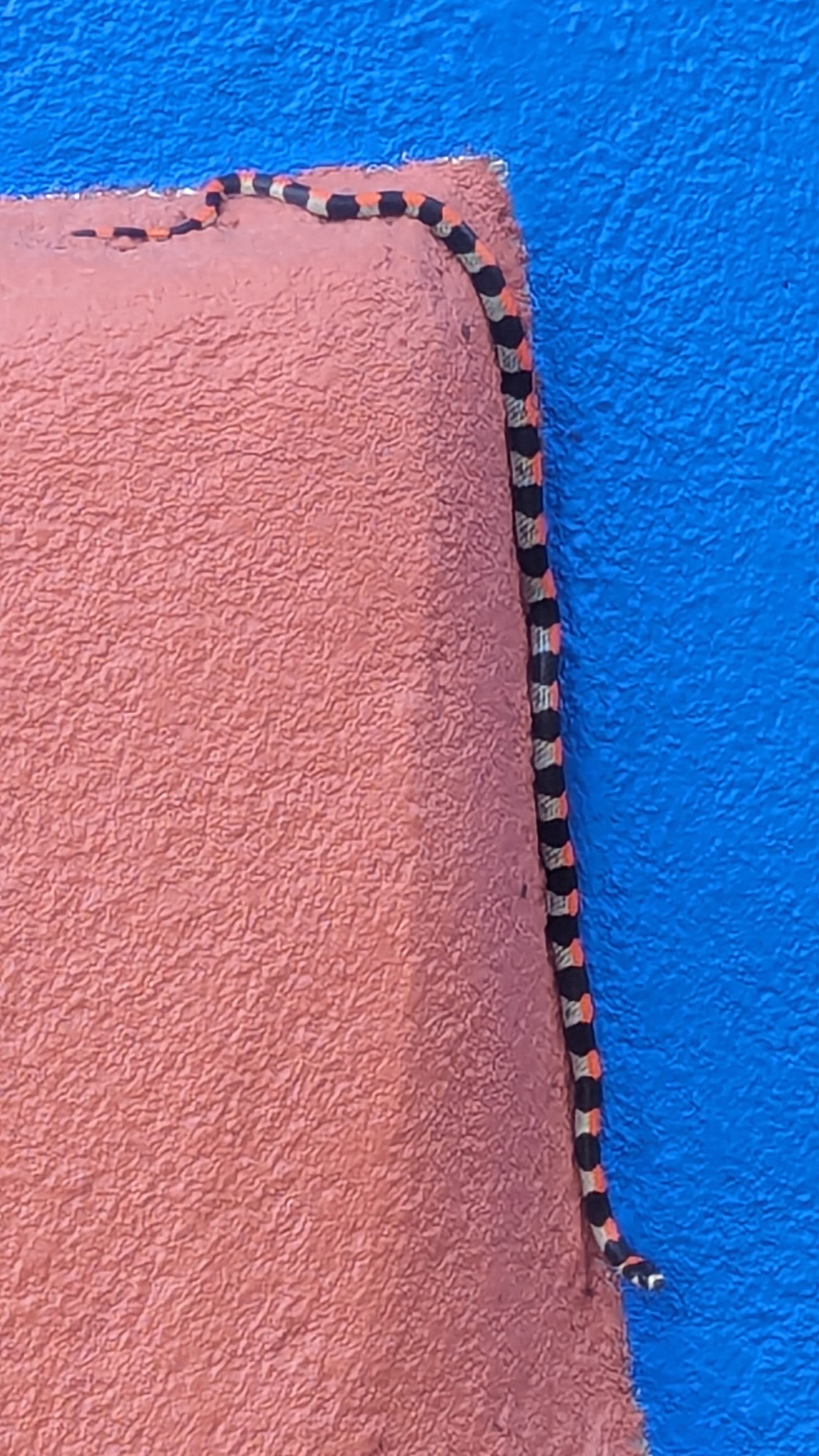
Breath of Fire–Winter 2007
by Ken Homer
[ed. note–if you enjoy these stories from Ken's life, send him a thank-you at kenhomer @ sonic.net – I know he'd appreciate it!]
It was a typical February day
Here in the Bay Area
A damp fog clung to the trees
There was a hint of a breeze
Temps in the high 40s to the low 50s
I drove to the end of the road
To the trailhead at Baltimore Canyon
A favorite hiking spot of mine
I sat in my car and took two hits
From a joint before getting out
As I was walking toward the trail
Two women were coming off it
Shall I give him the stuff?
The other answered in the affirmative
I was taken aback
They had to be talking about me
No one else was around
The younger of the two
Approached me while the
Other one went to their car
And began rummaging in the trunk
There’s a woman on the trail
Maybe half a mile in
She sprained her ankle quite badly
Would you take her some warm things?
I told them I’d be happy to
The other woman came over
Handed me a parka and windbreaker
Thank you she said
We’re off to get the paramedics
I set out at a rapid pace
Which soon had me quite warm
I reached the injured woman quickly
She was lean and fit in her mid-40s
Dressed in a singlet and running shorts
She was laying on the wet ground
Right beside the creek
Her bare arms and legs were exposed
To the damp and the chill February air
Her lips were blue and her teeth were
Chattering so badly I could
Hardly understand her when she spoke
She was shivering uncontrollably
I did my best not to appear too alarmed
I looked at her feet
Saw that her left ankle
Was hideously swollen
A good two or three times
The size of her right one
Hi I’m Ken and I’m here
To get you warm and
Keep you company
Until the paramedics arrive
What’s your name?
Despite her violent shivering
She managed to stammer Dolores
Okay Dolores why don’t
You put this windbreaker on and
With your permission I’m going to
Carefully remove your shoes
Then I’m going help you
Slide your legs into the sleeves
Of this parka to help to warm you
That will give you some insulation
Against the damp ground
Which is sucking heat out of you
Is that okay with you?
Just be careful of my ankle please
I promise I will be gentle
I can see that it’s a bad sprain
I managed to untie and
Remove her sneakers
I carefully guided her feet
Into the sleeves of the parka
And pulled it up under her
So that her lower body
Was no longer on the bare ground
Do you run here often?
Several times a week
I was on the King Mountain trail
(King Mtn is the hill above the canyon)
How long have you been laying here?
Maybe half an hour or 45 minutes
No wonder you’re freezing!
My husband is gonna kill me
When he hears about this!
Let’s focus on getting you warm
Before we worry about your husband
I’m concerned about your shivering
And the fact that your lips are blue
I think I have a way to warm you up
Is it okay if I put my hands
On the bottom of your feet?
I promise not to hurt your ankle
Anything that will warm me up
Is okay with me I’ve never felt so cold!
I can see that you are quite chilled
I am going to do some breathwork
You don’t need to do anything
You can just relax and if you want
You can match your breath to mine
At this point I’d had about three years
Of private chi kung lessons
I knew I could generate
A lot of heat for myself
But I didn’t know if I could
Use it to warm up another person
I knelt down and gently lifted
Her feet into my lap
Is this okay?
She nodded yes
I placed my hands flat against
The soles of her feet
I’m just going to breath now
My breaths will probably be
Too deep to match exactly
Why don’t you try taking two breaths
For every one of mine?
She nodded
I began to breathe as
Deeply as I could
Inhaling and exhaling through my nose
While focusing on my belly
I visualized a blazing fire filling my body
With flames moving down my arms
After about 15 minutes of this
Dolores stopped shivering
Her lips returned to a normal color
Oh my god! Oh my god!
I don’t know what you are doing
But I am completely warm now
I feel like I am sitting beside
A roaring fire wrapped in a blanket!
I am actually starting to sweat!
How are you able to do this?
This is totally amazing!
I can’t really explain it Dolores
I have been training in an old
Chinese art called chi kung
It has properties that our way of thinking
Lacks adequate language to describe
But as you can see it works!
I could now hear the paramedics
They would be there in a minute
As I was still quite buzzed
I didn’t want to be seen by them
I’m going to go now Dolores
But do me a favor will you?
Get yourself a good metal whistle
And carry it with you when you run
If you had sprained your ankle
Up on King Mountain it might
Have been hours before anyone
Came along to find you
You’re lucky you were down here
On the canyon path which is
Quite well traveled
Will you do that?
That’s a great idea
Thank you!
I’m going to leave you in good hands
The paramedics are almost here
You take care now
I headed off down the trail
Just as the paramedics arrived
Ken Homer • March 2024
A Few More Pix
by Ken Homer
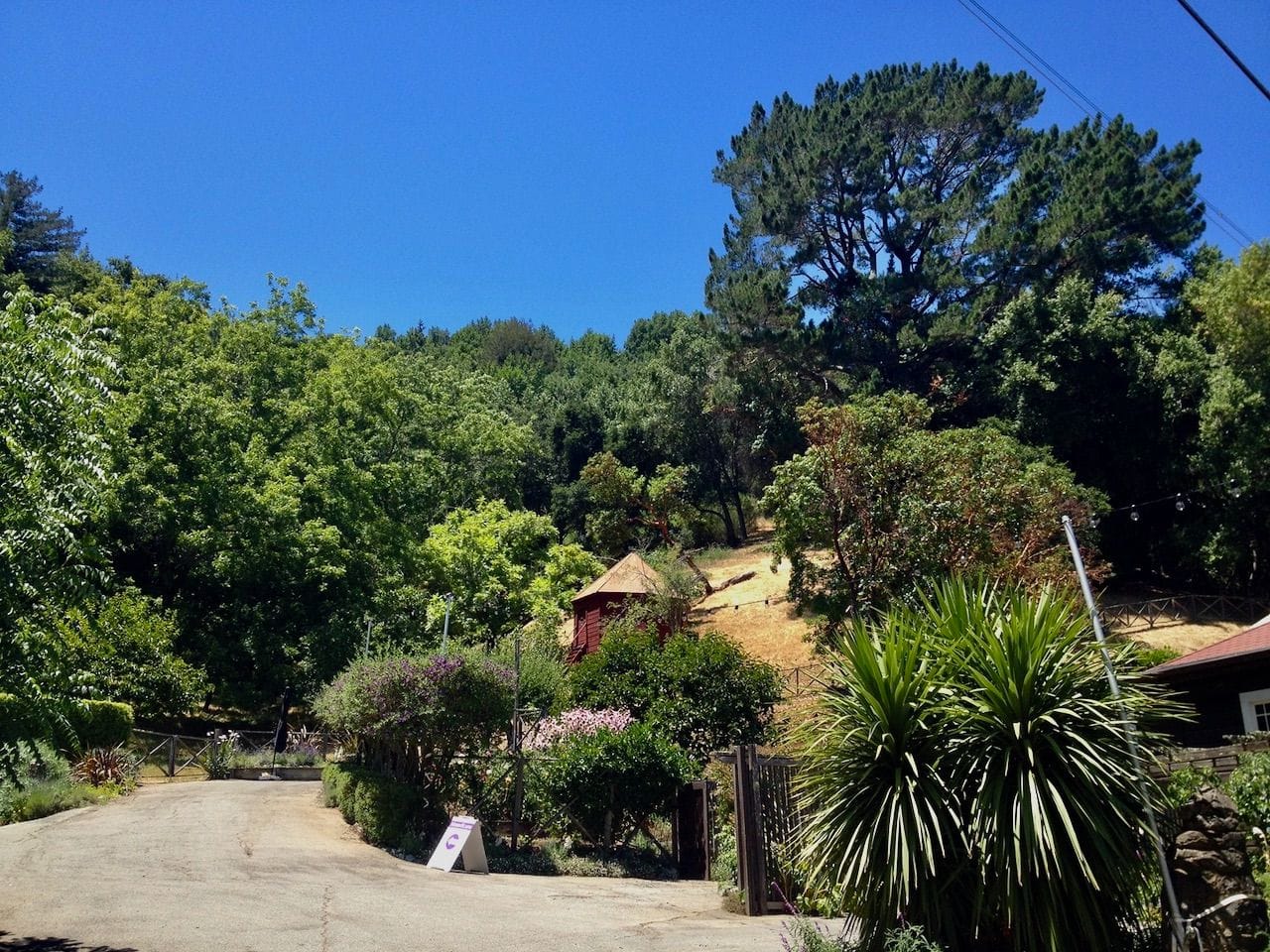
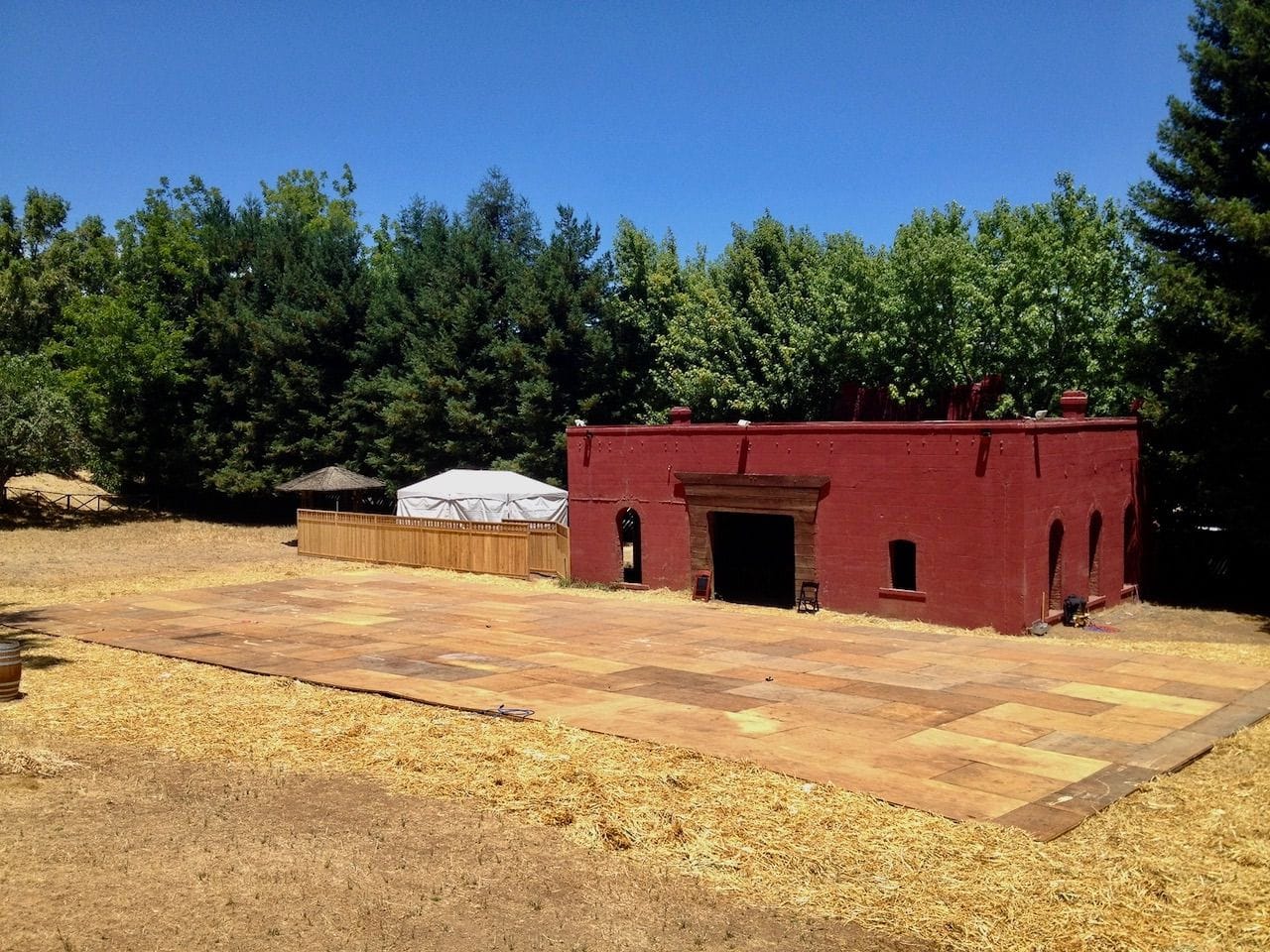
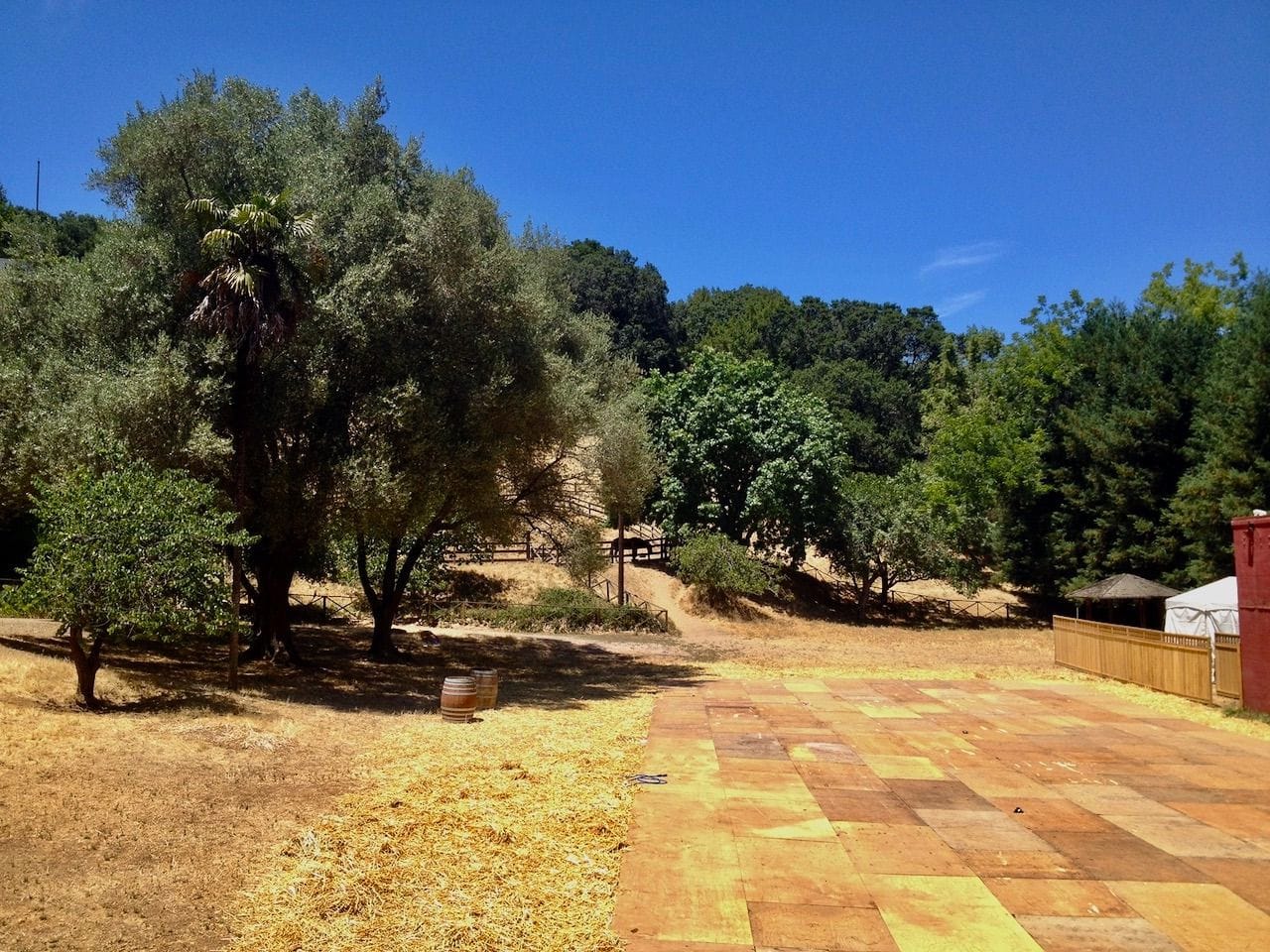
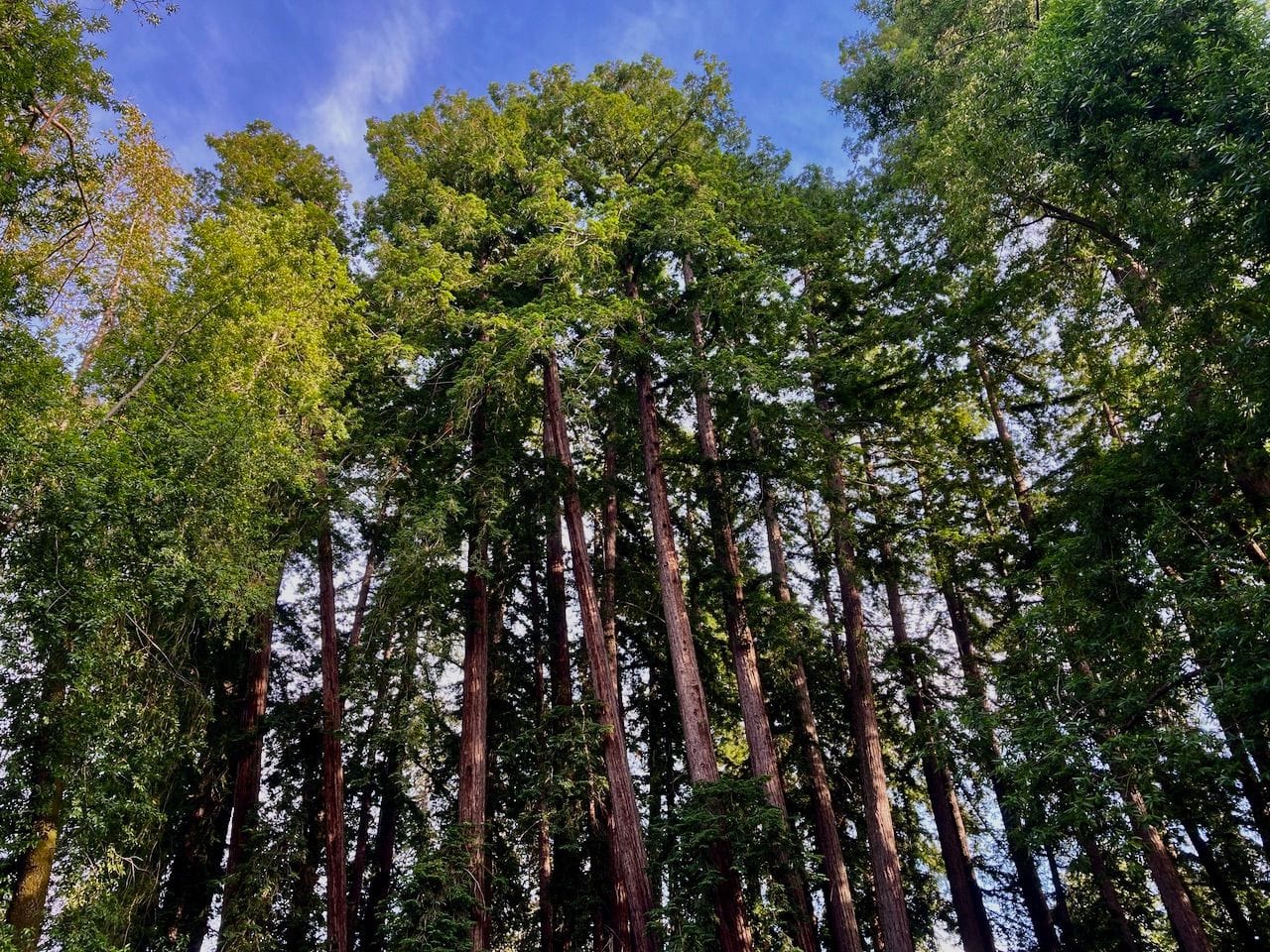
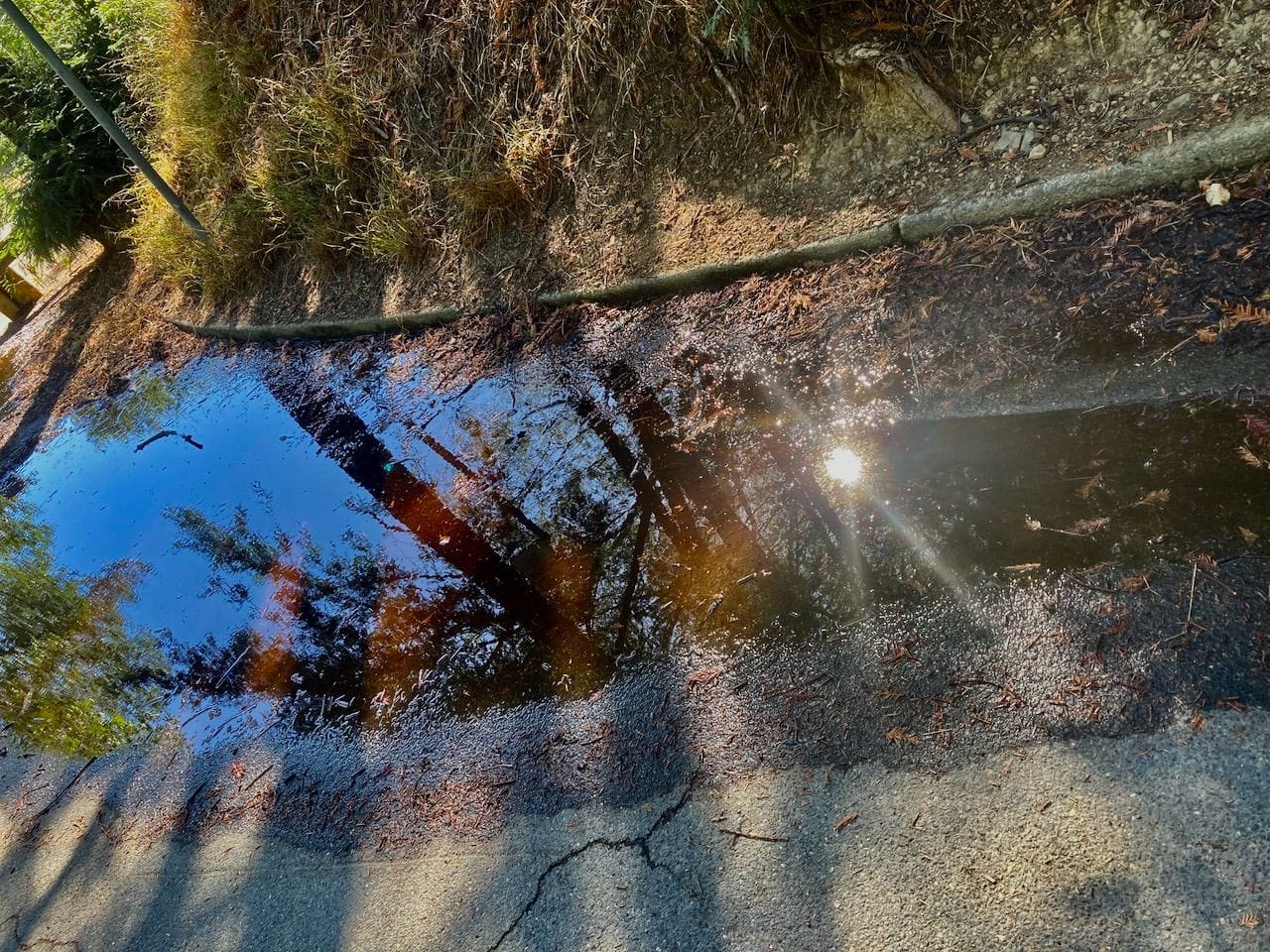
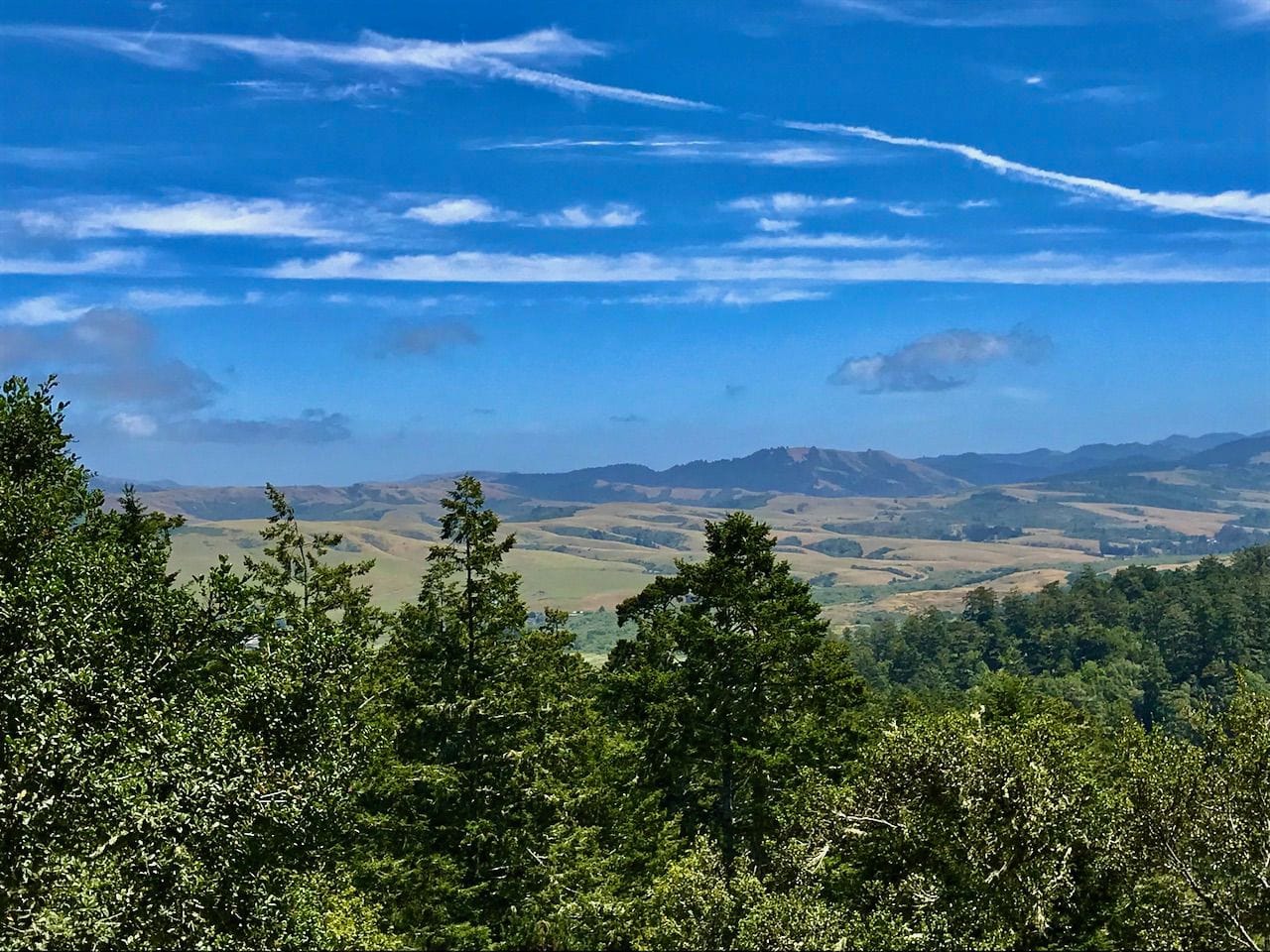
Thank you for reading! The next edition will be published on 3 April 2024. Email Pete with suggested submissions.
Grateful appreciation and many thanks to John Abbe, Charles Blass, Douglass Carmichael, Ken Homer, Todd Hoskins, Kevin Jones, Klaus Mager, George Pór, and David Witzel for their kind contributions to this issue.